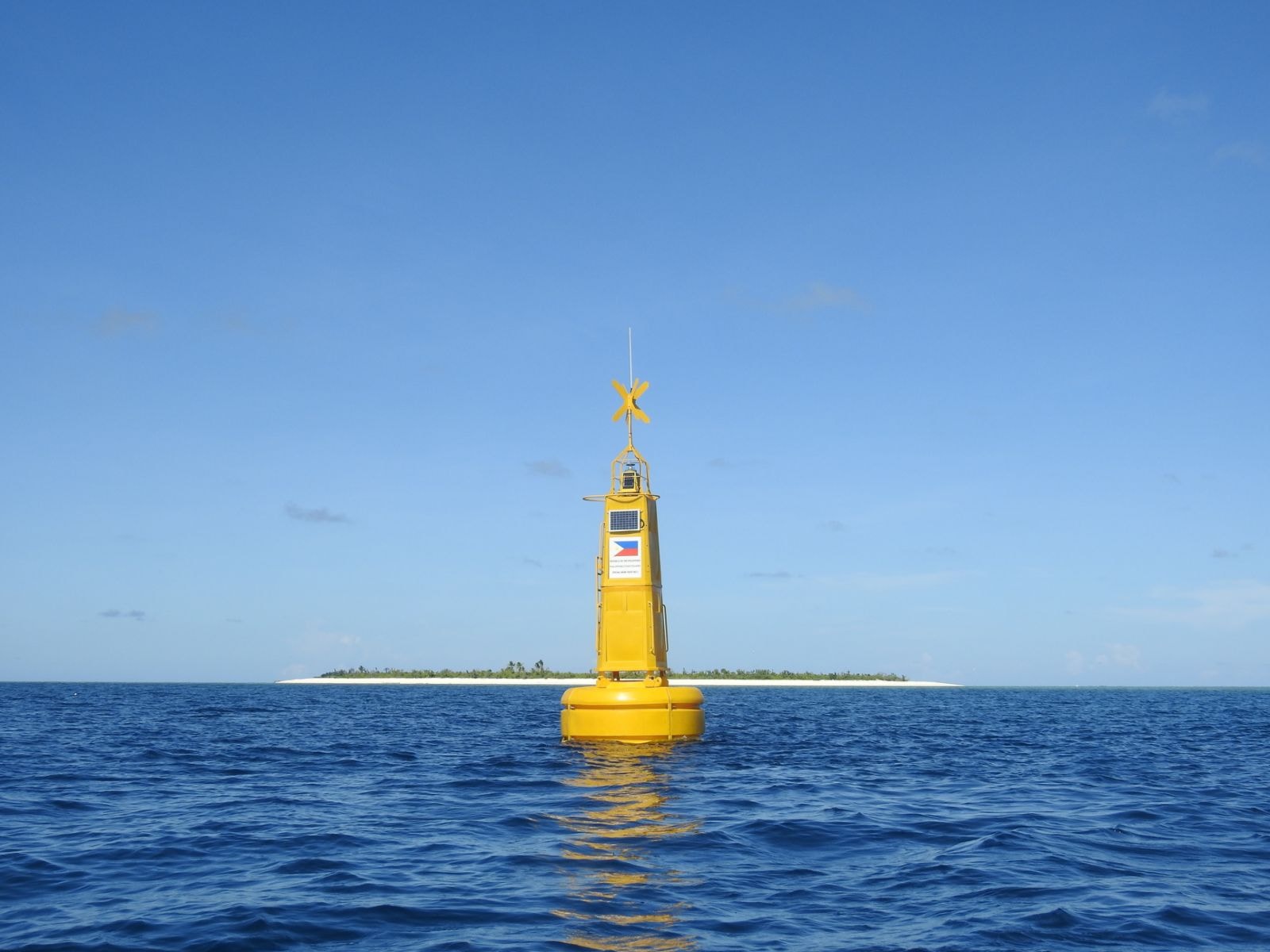Headline
US, PH defense chiefs ‘condemn’ Chinese gray zone ops in WPS

Experts define gray-zone activities as operations that fall below the threshold of what constitutes aggression to prevent a country from using self-defense. (File Photo: Philippine Coast Guard/Facebook)
MANILA – The United States and the Philippines’ defense chiefs “condemned” on Monday night China’s “gray zone” activities in the West Philippine Sea.
In a telephone conversation, Defense Secretary Lloyd Austin III and Department of National Defense Officer in Charge Carlito Galvez Jr. said these operations “interfere with the livelihoods of local Philippine communities and the rights of other claimant states that seek to operate lawfully in the South China Sea consistent with the 2016 Arbitral Tribunal ruling.”
The two officials expressed concern over China’s “massing of more than 40 vessels,” including a People’s Liberation Army (PLA) Navy ship within the 12-nautical mile territorial sea of Pag-asa Island in the West Philippine Sea this month.
“The swarming of vessels falls on the heels of a dangerous incident last month, in which the PRC Coast Guard directed a military-grade laser against a Philippine vessel operating lawfully around Second Thomas Shoal, temporarily blinding some of the crew,” said a US Department of Defense readout.
Experts define gray-zone activities as operations that fall below the threshold of what constitutes aggression to prevent a country from using self-defense.
In the West Philippine Sea, analysts said gray zone tactics could include the Chinese Coast Guard (CCG) invoking Beijing’s “rights” under its so-called historical claims over the West Philippine Sea, and the deployment of maritime militia and fishing vessels in the country’s 200-nautical mile exclusive economic zone (EEZ).
READ: Expose Chinese activities in SCS to counter ‘harassment’, PH told
In February, Foreign Affairs Secretary Enrique Manalo confirmed before an international security conference that the Philippines had experienced “daily incidents” of harassment within its EEZ.
The following month, the Philippine Coast Guard recorded the presence of at least 42 suspected Chinese maritime militia ships, a CCG, and a PLA Navy vessel anchored off Pag-asa Island, which is the seat of the local government of Kalayaan, Palawan.
Austin, during the phone call, guaranteed Washington DC’s “unwavering alliance commitment” with Manila and reiterated that the Mutual Defense Treaty extends to Philippine armed forces, aircraft, and public vessels, including Coast Guard ships, “anywhere in the South China Sea.”
Both officials also discussed plans to conduct combined maritime activities in the South China Sea and agreed to review the “full range of US-Philippine maritime cooperation” during upcoming foreign and defense ministerial dialogue.
The dialogue, dubbed as 2+2 meetings, is scheduled “sometime in the middle of April,” according to Philippine Ambassador to the US Jose Manuel Romualdez.
Austin and Galvez also anticipate the upcoming operational engagements between the US and Philippine Armed Forces, including during the Balikatan 2023 in April, which will be the largest iteration of the joint military drills with more than 17,000 participating troops.
Apart from Philippine-US defense relations, Austin and Galvez discussed the forthcoming US support to contain and mitigate the ecological damage stemming from an oil spill off the coast of Mindoro Oriental.
Austin also offered his condolences to Galvez for the recent murder of former Negros Oriental governor Roel Degamo and eight other individuals.
The phone call was made hours after the groundbreaking of the USD24 million runway rehabilitation project at Basa Air Base, one of the approved projects under the Enhanced Defense Cooperation Agreement, on Monday.



























